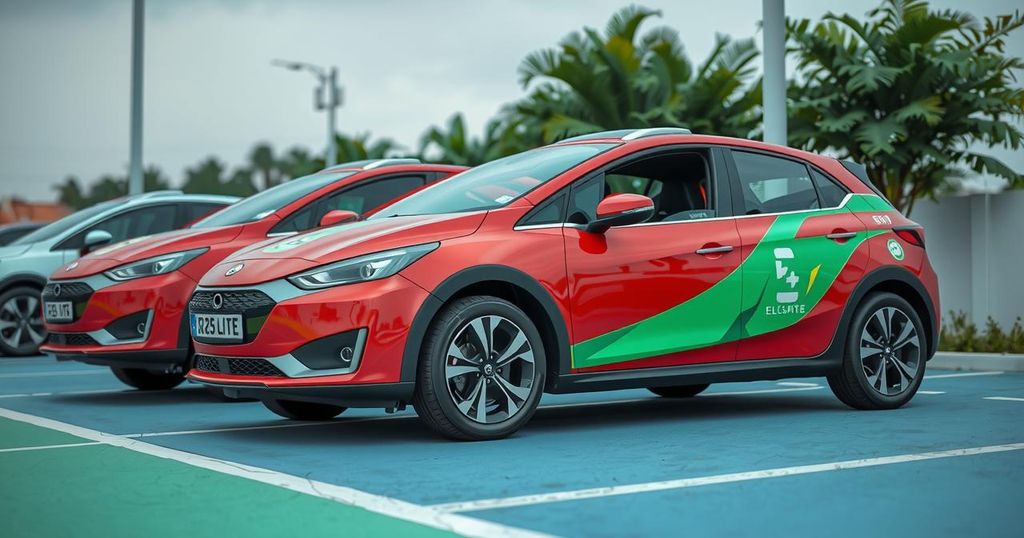Nigeria Must Embrace Electric Vehicles to Reduce Fuel Dependency and Enhance Sustainability
Sunday Aluko, a US-based Nigerian automotive expert, advocates for Nigeria to adopt electric vehicles, citing the benefits of reducing fuel dependency and enhancing transportation systems. He emphasizes the need for infrastructure development, governmental incentives, and global partnerships to facilitate this transition amid ongoing challenges such as fuel inflation and shortages.
A prominent automotive manufacturing expert based in the United States, Sunday Aluko, has emphasized the necessity for Nigeria to embrace electric vehicles as a means to significantly decrease its dependence on imported fuel. Aluko advocates for comprehensive reforms in the nation’s energy, transportation, and vehicle manufacturing sectors to facilitate the transition towards electric vehicles. He cites the persistent issues of fuel inflation, shortage, and theft as pivotal motivators for this eco-friendly shift.
During a recent conversation, Aluko discussed his research findings which indicate that electric vehicles can serve as a sustainable solution to Nigeria’s pressing energy and transportation challenges. He highlighted the urgent need for prioritizing electric vehicle adoption and the establishment of supportive infrastructure to combat environmental degradation and spur economic growth. Noteworthy, however, is the existing shortfall of critical infrastructure, particularly charging stations, which he identifies as a significant hurdle in the adoption process.
To address these challenges, Aluko strongly recommends that the Nigerian government implement incentives, such as reducing import duties on electric vehicles and offering tax breaks to manufacturers. He asserts, “This situation underscores the importance of creating a favourable environment for electric vehicle adoption. Without the right policies and infrastructure, the transition will remain a distant goal.” Furthermore, he advocates for strategic partnerships with global electric vehicle manufacturers to enhance local production capabilities, thereby lowering costs and generating employment opportunities.
Discussing his aspirations for Nigeria’s automotive industry, Aluko envisions Nigeria positioning itself as a leader in sustainable transportation solutions across Africa. He states, “The shift to electric vehicles is not just an environmental necessity; it’s an economic opportunity.” He believes that increased investment in electric vehicle infrastructure and consumer education can rapidly reduce reliance on imported fuel and improve overall transportation efficiency.
Moreover, Aluko calls for innovative strategies to promote electric vehicle adoption, including the introduction of solar-powered charging stations and affordable financing options for consumers. He asserts that these initiatives could provide a foundation for decreasing fuel dependence and ultimately establishing Nigeria as a frontrunner in sustainable transportation within the African continent. He concludes, “With the right policies, infrastructure, and public awareness, Nigeria can transition to electric vehicles, creating a future of economic growth, environmental sustainability, and energy independence.”
The discussion surrounding electric vehicles (EVs) is gaining traction globally, as countries seek to reduce their carbon footprints and alter reliance on fossil fuels. In Nigeria, the challenges associated with fuel inflation, theft, and shortages exacerbate the need for a transition to cleaner transportation. The government is under increasing pressure to initiate reforms in key sectors such as energy, transportation, and vehicle manufacturing to support this shift. Advocates for electric vehicle adoption recognize the potential economic and environmental benefits and stress the importance of infrastructure development to facilitate a successful transition.
In summary, Sunday Aluko’s insights underscore the critical need for Nigeria to adopt electric vehicles as a means of reducing fuel dependency and advancing environmental sustainability. His recommendations for government incentives, infrastructure development, and international partnerships present a roadmap for the nation to emerge as a leader in sustainable transportation within Africa. As Nigeria confronts its energy and transportation challenges, the adoption of electric vehicles is not merely an option but a necessary step towards economic growth and environmental preservation.
Original Source: punchng.com




Post Comment